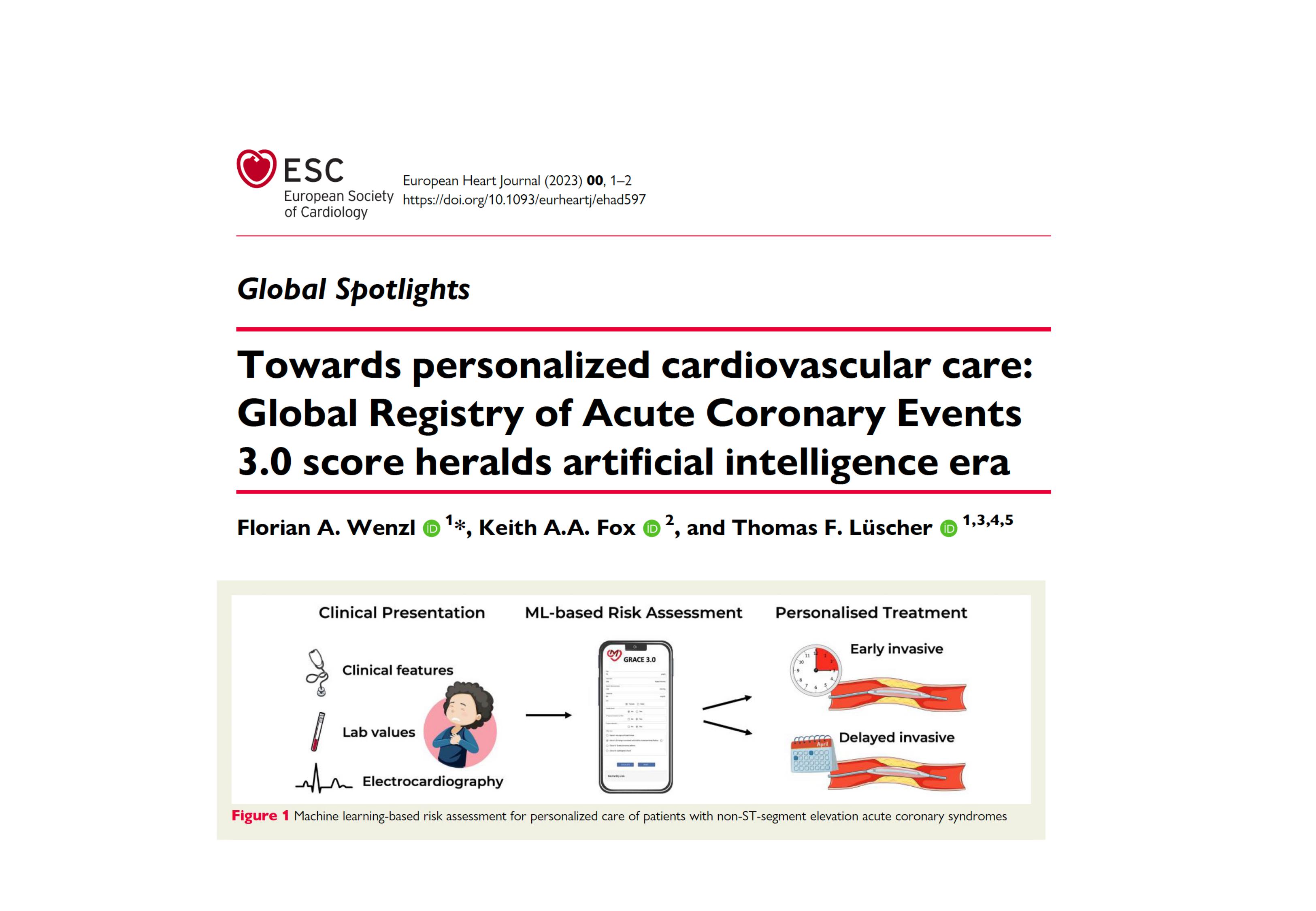Towards personalized cardiovascular care: GRACE 3.0 score heralds artificial intelligence era

Accurate risk assessment is key to advance personalized treatment strategies in the heterogeneous group of patients with acute coronary syndromes (ie, heart attacks). The global registry of acute coronary events (GRACE) scoring system has become a central tool in risk stratification. The redeveloped machine learning (ML)-based GRACE 3.0 score, recently published in The Lancet, was developed in one of the largest studies on risk prediction in patients with a heart attack to date involving leading partner institutions in Switzerland (Inselspital Bern, Kantonsspital St. Gallen, University Hospital Geneva, University Hospital of Lausanne) and the UK.
In their recent article, published in the European Heart Journal, Dr. Florian Wenzl, Prof. Keith A. A. Fox, and Prof. Thomas F. Lüscher provide their view on the future of risk prediction for personalized cardiovascular care. Many agree that the sex-specific GRACE 3.0 score represents just another step towards a new era in cardiology with a surging number of studies applying AI methods expected in the near future. Being among the first ML-based prediction models in cardiovascular medicine endorsed by European Society of Cardiology (ESC) clinical practice guidelines, GRACE 3.0 and similar tools likely represent the dawn of a digital revolution.
Read the full article here
Machine learning-based risk prediction with GRACE 3.0